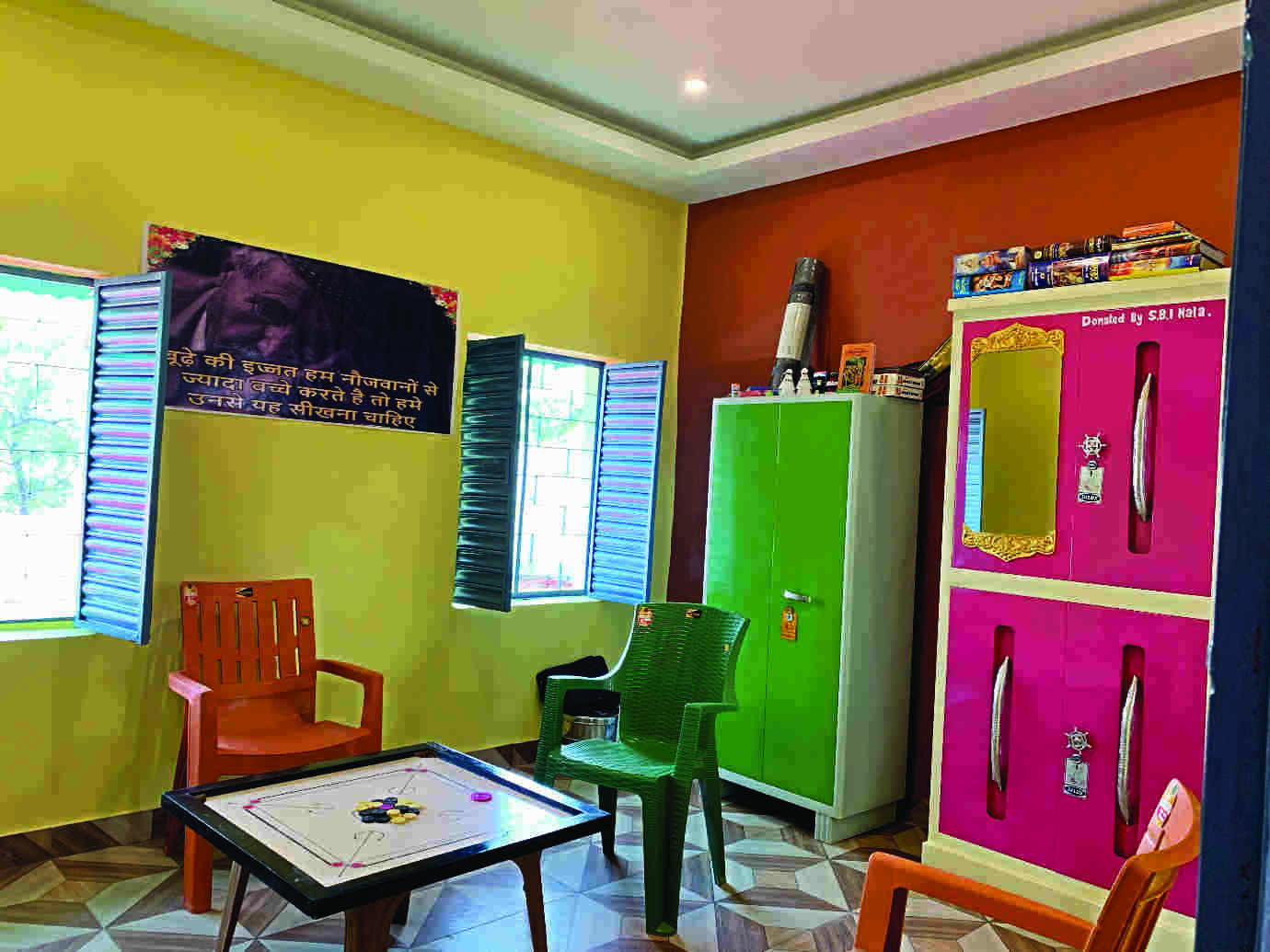Nexus of Good: Bliss for the old age
The DM of Jamtara went beyond the call of duty in establishing Elders' Clubs and libraries that would bring joy to the marginalised lot

We are all aware of the loneliness and social isolation that the aged have to go through in this fast-moving world where no one has time for others. With their children mostly busy with their own work and life, the elderly persons are left to fend for themselves. There are many health and psychological problems that the elderly face. Elders' Club is an attempt to address some of these issues. An initiative has been taken in District Jamtara in Jharkhand to provide a place for the aged where recreational facility as well as a facility to bond and socialize with people of their age are made available
Elder's Clubs have been set up in different blocks of Jamtara District by this young and dynamic District Magistrate, Faiz Ahmed Mumtaz, with the help of his team in response to the instances of depression and social isolation among the aged. There were instances where children had thrown out parents from their homes. The clubs are administered in a manner so as to ensure their smooth functioning. There is a Management and Maintenance Committee with a president and a treasurer to look after the overall functioning of the clubs. There are other committees as well, including the Education and Entertainment Committee, Health Committee and Training and Counselling Committee. There is also a Senior Citizens Committee, with the subdivisional officer (SDO) as its member, to look into the issues of neglect of elderly parents.
Regular health camps are organised at each club to deal with health issues that are specific to the elderly population. A volunteer is designated at each club to help organise Yoga classes and light exercises for the willing members. Every individual above 60 years of age becomes an automatic member of the club in his/her block. The administration has tried to enroll at least one member from each panchayat in one of the committees.
An integral part of these clubs are the libraries. Faiz Ahmad came up with a plan to leverage resources through convergence of various government schemes and public participation, and decided to build at least five rural community libraries in each of the six blocks of Jamtara in the first phase and eventually in all 118 panchayats of the district. A basic plan was drawn out about their functioning with the help of community participation so that they could be made sustainable in the long run. Library Maintenance Committees were constituted from among the panchayat volunteers and students, who in turn chose volunteer librarians who were given basic training and are supposed to look after the overall maintenance of the library. Panchayat mukhiyas have been made patrons of respective libraries so that they can help in upkeep of those libraries. Bank accounts were opened for each library so that donors could directly donate to the library.
Availability of books and furniture has been ensured through donations and contribution from CSR, public representatives, district officials and common citizens.
As the setting up of libraries in villages was a novel concept, the challenge was to make it functional and get the rural community to make good use of it. Thus, police personnel and officials of civil administration spend three hours for two days in a week in each library — helping out local students with their studies as well as motivating them. 118 teachers of the district have volunteered to adopt one library each and are giving their valuable services.
These libraries are solving multiple problems:
1. Old dilapidated buildings have been refurbished and repaired. These salvaged buildings are now useful assets for the panchayats.
2.Good books for various competitive exams have been provided in these libraries for students.
3. Female students who would otherwise have dropped out, are getting a place in their village to pursue their ambitions without having to leave their village to prepare for competitions.
4. Talented poor kids who cannot afford to take coaching in metros have now well-stocked beautiful libraries in their panchayats.
5. As many people visit and benefit from the libraries, it motivates others to do the same.
6. Police personnel teach at the libraries every weekend. It presents a different picture of the much-maligned image of the police force.
7. It will go a long way in increasing the literacy of the district which is among the most backward in the state.
8. It is providing hope to the local youth.
9. A sense of community participation and responsibility has developed in many panchayats
All Elders' Clubs have libraries on the same lines as the community libraries mentioned above. These Clubs have also been provided with Colour TVs, indoor and outdoor game facilities such as carrom boards, ludo, chess and badminton.
Buildings have been repaired to house the Clubs through utilising the 15th Finance Commission funds of Panchayat Samitis at the Block level. Donations have also come from local businesses. Contributions came from civil and police administration for televisions, indoor games, sofas, chairs, cupboards and books.
The district administration is now planning to register these clubs as societies to enable them to raise their own resources and become self-sustaining.
Many elders of the district have taken the initiative with great excitement and are happy with the way it has all been organised. Despite being in their infancy phase, both the initiatives of setting up of community libraries and Elders' Clubs have had an extremely positive response from the beneficiaries.
District Magistrate Faiz Ahmad and his dedicated team have gone well beyond their call of duty to care for the elders and for setting up libraries. They present a great example of Nexus of Good. It is a model that can be replicated and scaled in more districts of the country.
Views expressed are personal



